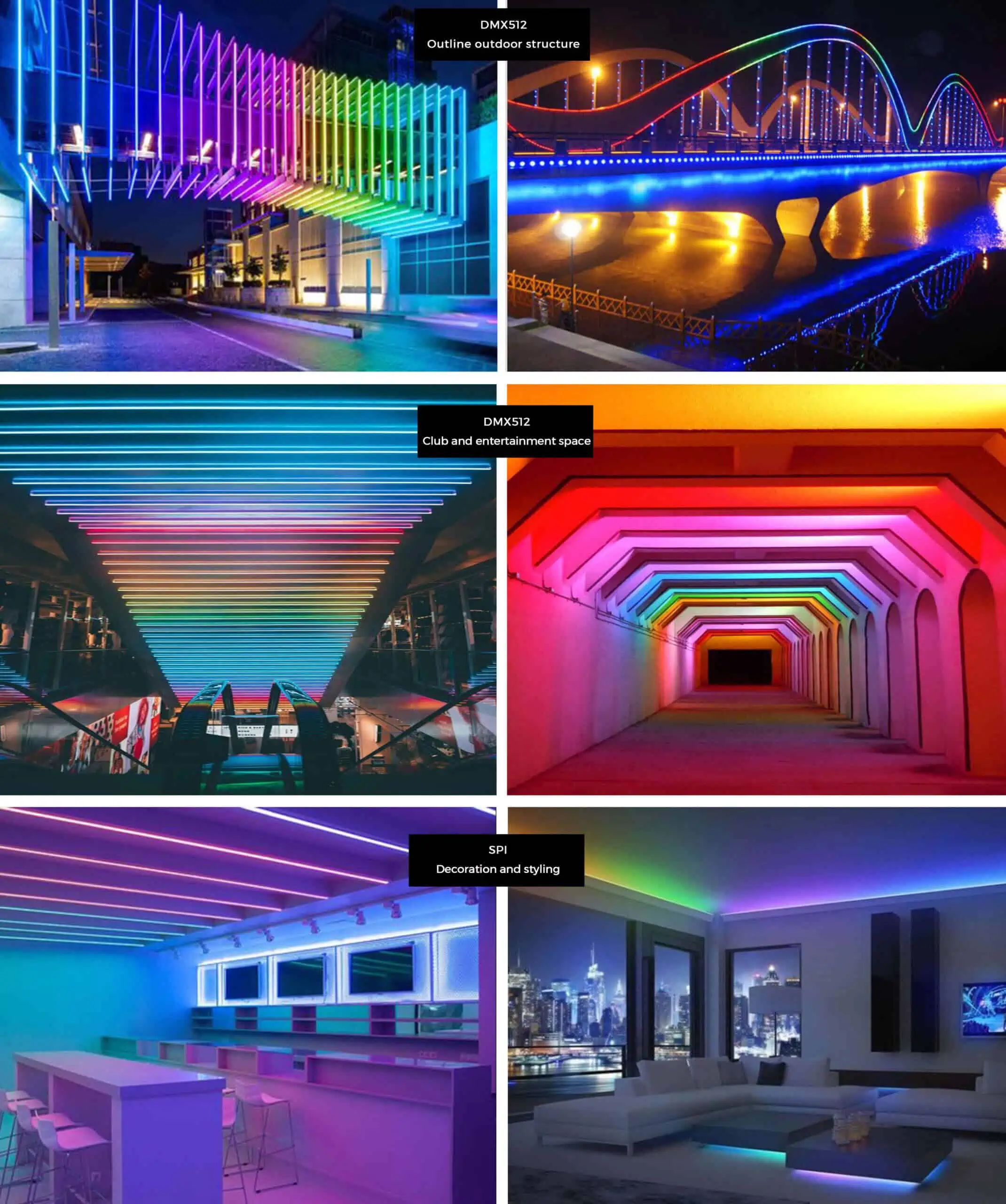DMX512 & SPI Neon Series
What is Addressable Neon Flex?
Addressable neon flex is a neon flex with control ICs that allow you to control individual LEDs or groups of LEDs. You can control a specific part of the neon flex, which is why it is called “addressable.” Addressable neon flex is also called digital neon flex, pixel neon flex, programmable neon flex, chasing neon flex, magic neon flex, or dream color neon flex.
Applications of Addressable Neon Flex

Addressable LED neon lights are divided into 2 types, SPI addressable neon lights, and DMX512 addressable neon lights. The Serial Peripheral Interface (SPI) is a synchronous serial communication interface specification used for short-distance communication, primarily in embedded systems. SPI is used for simple applications. We have two versions of SPI, SPI(single data cable) and SPI (dual data cable). DMX512 is a standard for digital communication networks commonly used to control lighting and effects. It was initially intended as a standardized method for controlling stage lighting dimmers, which, before DMX512, had employed various incompatible proprietary protocols. It quickly became the primary method for linking controllers (such as a lighting console) to dimmers and special effects devices such as fog machines and intelligent lights.Type of Addressable Neon Flex?
SPI Addressable Neon Flex
DMX512 Addressable Neon Flex
DMX512 adopts signal differential transmission mode to ensure more vital anti-interference ability and longer transmission distance.SPI VS DMX512
DMX512 SPI Signal protocol Parallel, synchronous parallel interface signal transmission technology, a universal signal control protocol for digital lighting equipment Serial (synchronous serial interface signal transmission technology) Wring More complicated Easy wiring Compatibility Good, unified IC category/protocol, and DMX512 is used for some luminaires Relatively inferior, with various lC categories and slightly different protocols, basically no SPI luminaires Reliability Breakpoint transmission, parallel transmission of signals, with high reliability Breakpoint transmission, no renewed transmission of two successive breakpoints Anti-interference of signals Good, with strong long-distance communication anti-interference capability Inferior, long-distance communication is subject to strong current/strong magnetic disturbances Overall cost High Low Application Indoor and outdoor large & ultra-large advertisement lighting and synchronous control of light show Small spaces/ independent styling/ supporting facilities

